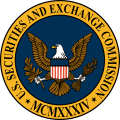
Do I Have Too Much Cash On Hand?
As a financial planner, I get all sorts of questions about “investments.” Anything from what type of account should I open to what type of exchange traded fund should I buy? In recent months, I’ve started to get the question, “do I have too much cash on hand” and while most of us think of investments as specific stocks, bonds, mutual funds, etc. it’s important to remember that cash is a type of investment and an asset class that should be carefully considered as part of your overall financial plan. So, do you have too much?
As always, “it depends.” There are a few things to consider as you explore what is most appropriate for you and your family. Below are just a few quick things to be mindful of as you’re determining the appropriate amount.
1) Emergency Savings: the first question you should ask yourself is “do I already have an emergency savings account?” This account should be intended for, well, emergencies. If you lose your job or have a large unexpected home/car expense, this cushion should get you through those circumstances. What’s the right amount? Three to six months of required expenses would be the standard recommendation. If you’re in an industry that is more volatile or you expect going unpaid for a period of time, adjust that amount up.
2) Upcoming Expenses: the second question you should ask yourself is “do I have some large known expenses to plan for?” Maybe you need a down payment for a car or a house in the near future so having an excess fund for those expenses does make sense. (Pro-tip: humans like compartmentalizing parts of their life so if you can dedicate specific bank accounts for specific functions, it is typically advisable).
3) Risk Level: this question is the most ambiguous; “can I sleep at night with that much in my account?” There are the “standard recommendations” that evolve from the science of financial planning but there is also an art to financial planning, in which you take into consideration intangible things like emotions and feelings. If I have a client that cannot bear only having 6 months of emergency savings in cash then sure, I would say they can have an extra chunk in cash somewhere to provide some peace of mind but I will always express the tradeoff of that decision. So, what is the tradeoff you ask?
With almost any decision in financial planning (or in life really), there isn’t a “right” answer. I can’t tell a client the right thing to do because my “right” thing isn’t their “right” thing. My job is to express the options as well as the benefits and consequences of each of those respective options and recommend what is best for a client based on their personal preferences, circumstances, beliefs, values, etc.
Most eloquently put in the words of renowned economist, Thomas Sowell, “There are no solutions, there are only tradeoffs.” The simplest way to explain this concept when it comes to cash is exploring what the cash you’re holding could be doing for you otherwise.
For example, Client A has $70,000 in cash and their monthly required expenses are $4,000 so they should have $12,000 – $24,000 in cash. Assuming they have no other cash needs, the amount of investable cash is $70,000 – $24,000 = $46,000. If Client A kept $46,000 in cash, he or she may make 1% in a savings account and lets just use simple interest so $460 per year would be your return on that cash in one year. In 10 years, that would be $4,600 (keep in mind compound interest is almost always used in calculations but this is just meant to be illustrative).
If you took the $46,000 and invested it into a diversified account instead and the market was returning an average of 6% over a 10-year period for example, your total return would be $36,378.99, making your account balance $82,378.99. Your tradeoff is the difference between the ~36k and the ~5k so quite a large amount of money. Keep in mind this does assume a certain return over an extended period of time but hopefully you get the picture. Is it wise to keep $46,000 in cash knowing that those dollars could be growing somewhere else? Not in my personal opinion, however, the decision is ultimately up to that client. It should also be noted that this concept can be applied to “investments” that aren’t necessarily the market; but that’s typically my recommendation for most people.
Lastly, I want to express that there have been situations where clients will say “should I use my cash or finance something?” and a similar analysis can be done. What are you paying in interest and is that interest rate lower than what you could get investing your cash elsewhere? Basically, can your cash make more elsewhere rather than being tied up in a purchase BUT do not be misled into thinking that just because you finance instead of paying in cash that you done all that’s needed. Remember the math reflected above is contingent upon you actually putting the money to work. I’ve had people who will look at the numbers, decide to finance with cheap debt, and then never invest the dollars…and that simply doesn’t work and doesn’t yield what you’re expecting.
So, what’s your next step? Well, take a look at your cash accounts and think about what makes the most sense for your specific situation and as with any financial decision, consult with your financial and/or tax professional first. If you’re in the market for one, feel free to schedule a free consultation with us through our website.
Photo by Blogging Guide on Unsplash

